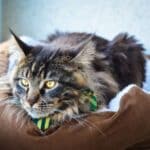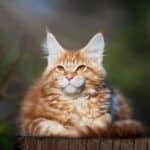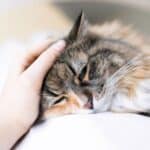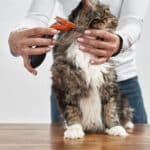Cats can cough for many reasons, and it can be stressful for owners when they don’t know what’s happening. In this article, we’ll explore 7 of the most common causes of your Maine Coon coughing.
Jump to:
Why Is My Maine Coon Coughing?
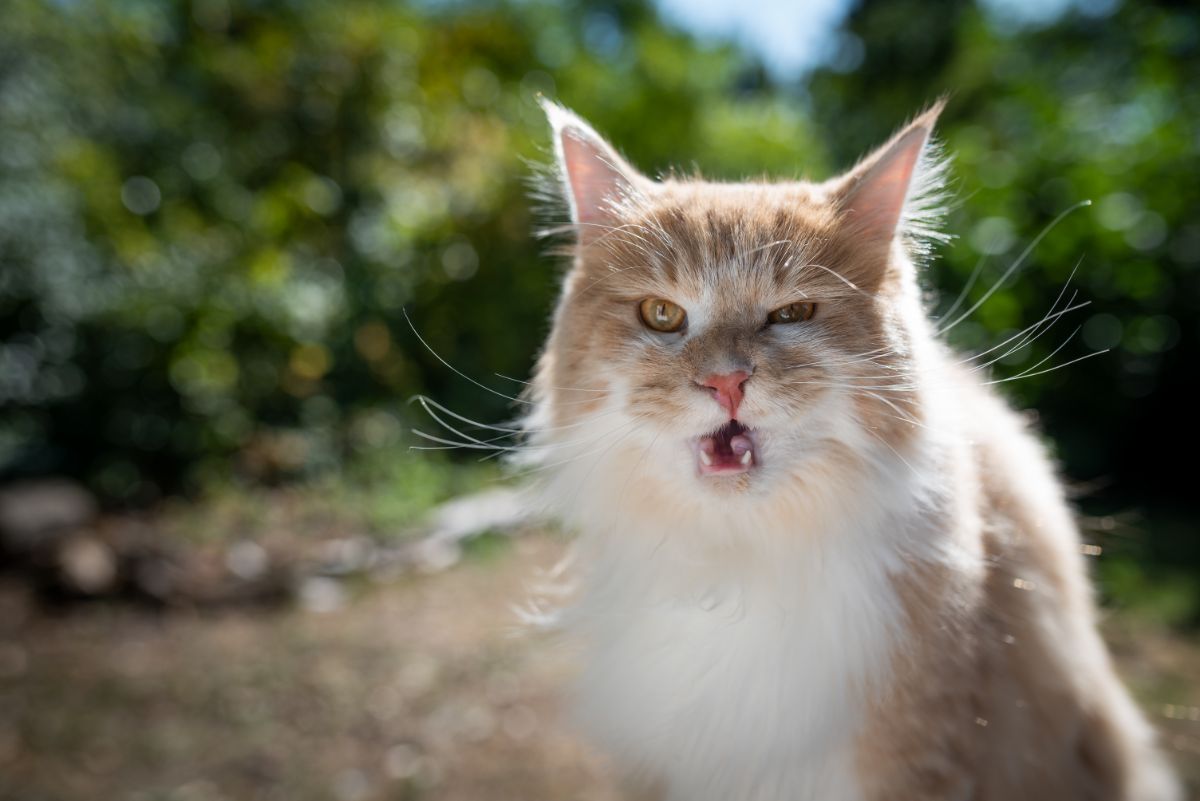
Maine Coons can cough because of tight collars, respiratory infections, asthma, and other illnesses. Each cat is different, so it’s essential to keep your vet involved while you try to determine the cause of your cat’s cough.
Tight Collars
Your Maine Coon might be coughing thanks to a collar that’s too tight around their neck. When collars, ropes, or ribbons press against the cat’s windpipe, it can cause them to cough to try and relieve the pressure.
An easy first step to diagnosing your cat’s coughing problem is to loosen their collar. If you’re worried your cat can wriggle out of it, try checking out the following possibilities instead.
Respiratory Infections
Just like us, Maine Coon cats will cough when they have a cold or respiratory infection. It’s a natural response to an increase in mucus the body produces to fight the disease. Respiratory infections will disappear for most cats as the cat gets better.
You will also notice symptoms like a runny nose, watery eyes, or hear wheezing when they try to breathe. If any of these symptoms or their cough worsens, take them to your vet.
Asthma
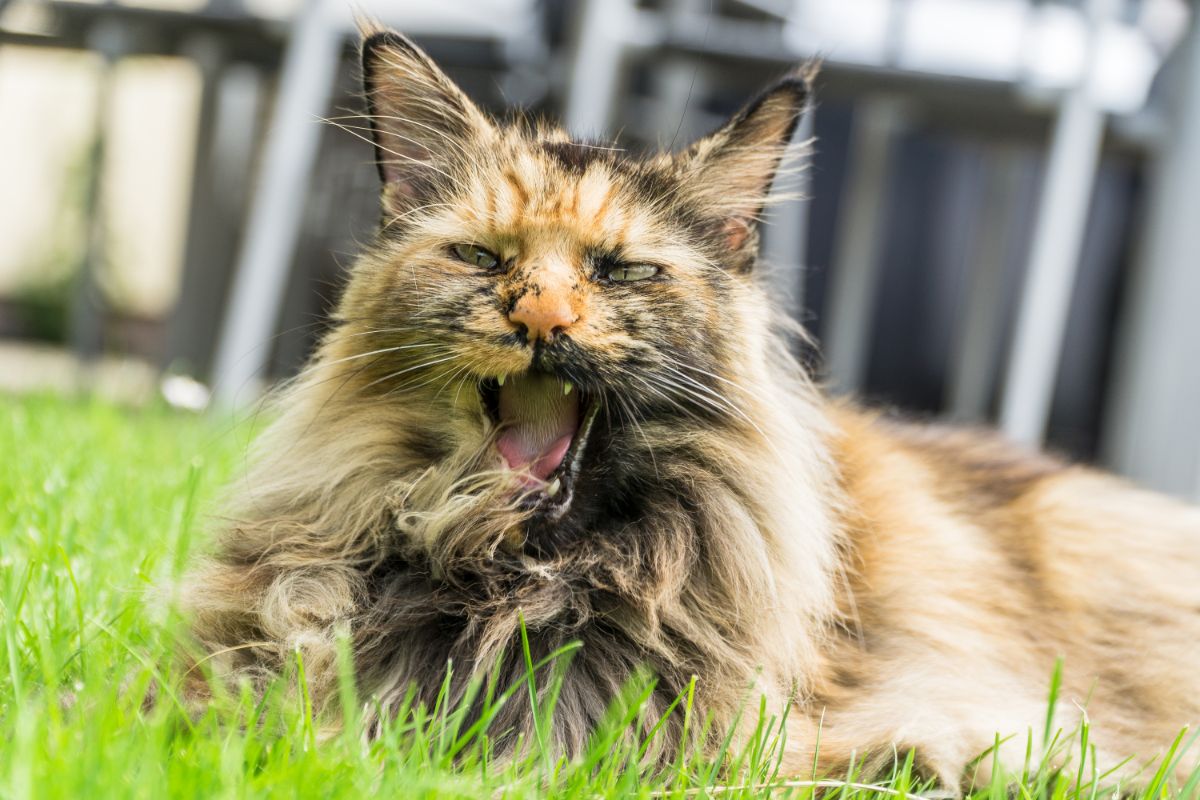
Yes, cats can get asthma, and so can your Maine Coon. Asthma tightens the airways and can cause Maine Coon coughing fits when you don’t properly treat it. You’ll be able to hear the cat struggling for breath, panting, and wheezing.
While it’s nothing to worry about and is easily treated, it is something your veterinarian should be aware of.
Allergies
If your Maine Coon has allergies, there are additional symptoms you can look out for besides coughing.
Your cat will have wet or dry build up around their eyes and nose and frequently sneeze. You may notice them scratching more than usual or over-cleaning a section of their fur and causing hair loss.
Allergies can be from various environmental stimuli, such as a new type of food, a change in the seasons, your house heat kicking on or off, and even the laundry detergent you use to wash your clothes and bedsheets with.
If your Main Coon’s cough isn’t an immediate threat and you notice one or more allergy symptoms, look around your house to see if anything has recently changed.
Hairballs
The unfortunate answer to “what noise is my cat making?” is often a hairball. Maine Coon cats, and most other long-haired breeds, are notorious for hairballs. Thanks to their long and thick undercoats, they swallow a lot of hair when they groom themselves.
A hairball now and then won’t hurt your cat and is often unavoidable. If you notice more than just hair (chunks of food, foreign objects) in the hairball, or if it’s happening more than once every few days, you should take your cat to the vet.
When cats have hairballs, the sound is sometimes described as a “hacking” sound as they struggle to get rid of the hair. A cough from a cat usually is quieter and doesn’t last as long. However, hairballs can cause cats to cough afterward because of the irritation to their throat.
Stomach Problems
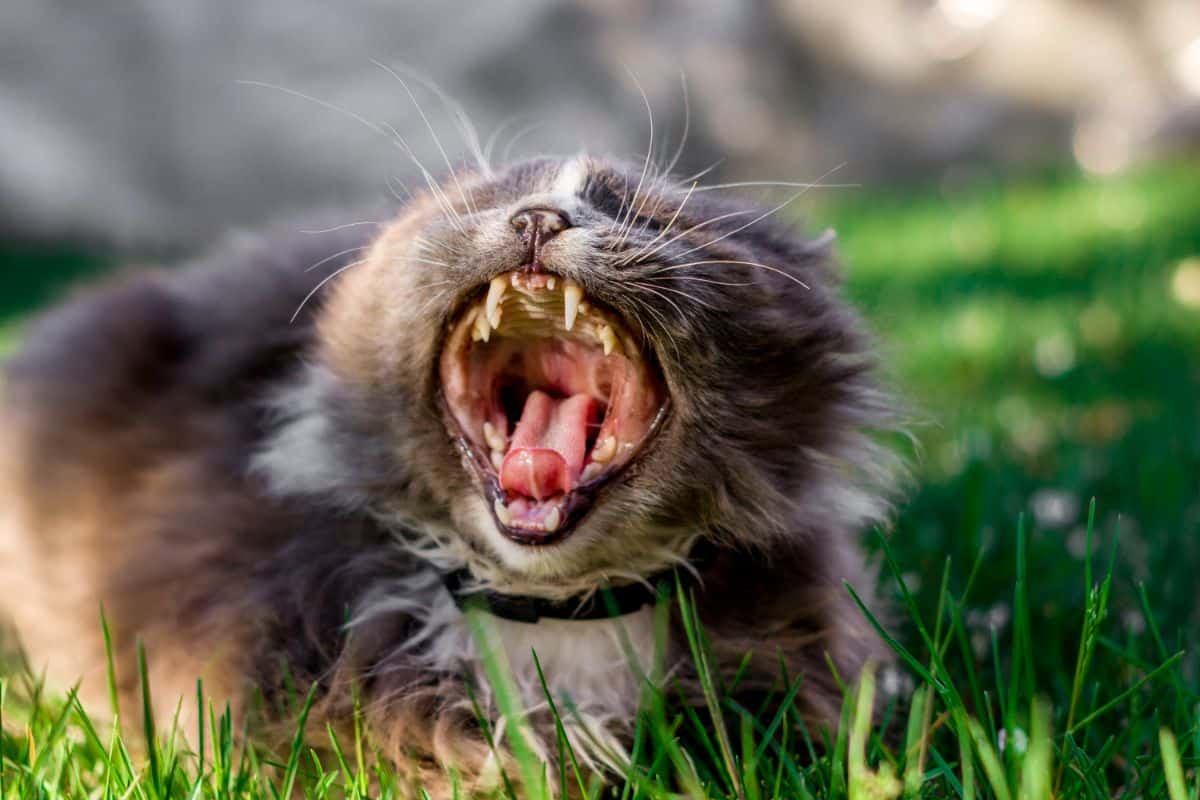
Maine Coon coughing can also be stomach or GI issues. Cats can eat too quickly, and food can become lodged in their throat or esophagus, causing them to gag or cough. If you have an outdoor cat, they may have eaten something from the yard or caught their own dinner, which isn’t sitting well with their stomach.
Inhalation of Foreign Objects
I don’t know about you, but my cat loves to destroy her toys. Because of this, I’m always going around picking up the tiny bits of ribbon, string, or fluff that she’s pulled off some poor fake mouse. If your cat ingests or inhales a foreign object while playing, it can cause them to cough as they try to eliminate it from their body.
Why Is My Cat Coughing but No Hairball?
Your cat can cough without producing a hairball, and their cough may have nothing to do with hairballs at all. Some cats cough due to allergies, stomach issues, or respiratory infections.
What Should I Do if My Cat Is Coughing?
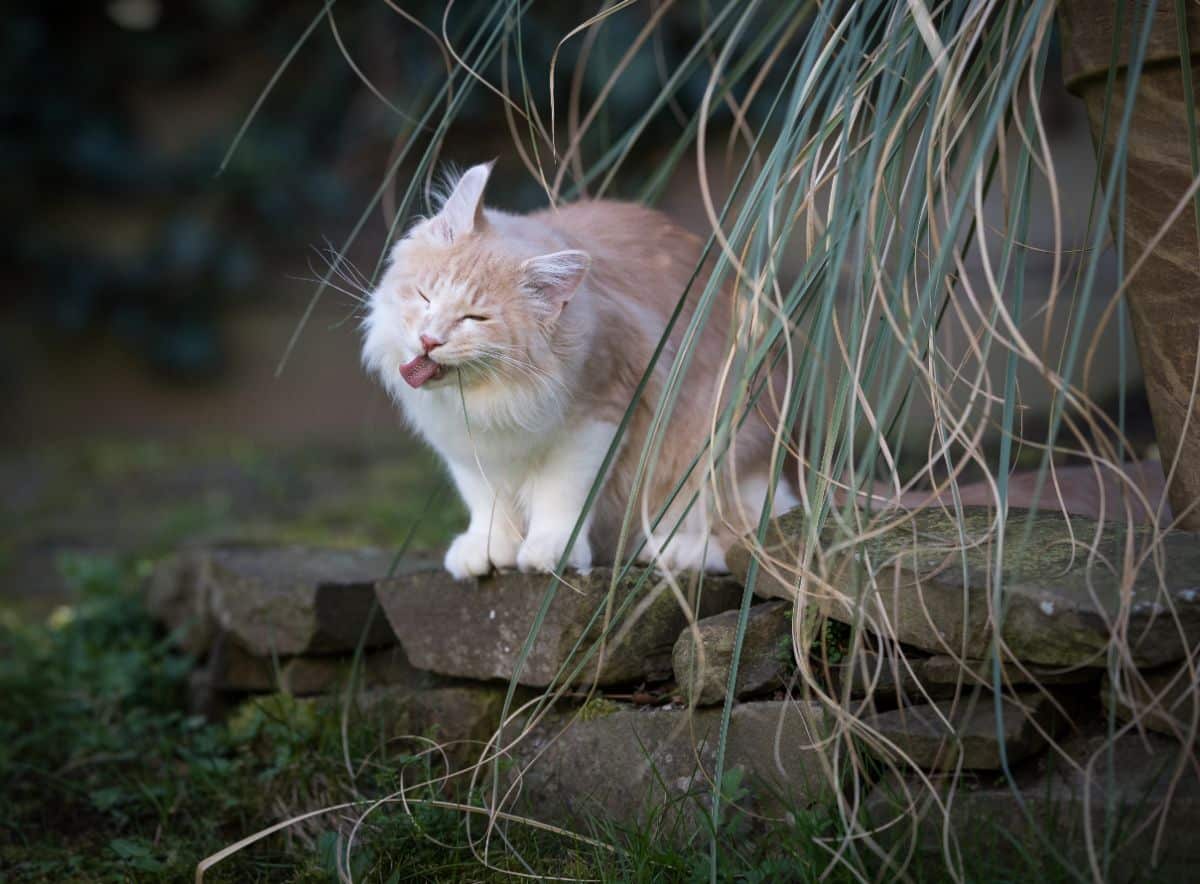
Generally, you shouldn’t worry if your cat coughs occasionally. If you’re worried that the coughing is too frequent, write down every time your cat coughs.
What time of day was it, did your cat just eat, and what room are they in? These questions can help you determine the cause of the cough.
If you can’t figure out why your cat is coughing on your own, you should make an appointment with your vet. They can help you remedy the problem before it gets out of hand.
How Do I Know if My Cat’s Cough Is Serious?
To determine if your cat’s cough is serious, you should consider three things:
- How often is my Maine Coon coughing?
- Are they coughing, or are they choking?
- Are there any other symptoms besides the cough?
If your cat is coughing every day and you can’t determine why, you should take them in to see the vet. Even if there’s nothing wrong, now your veterinarian’s office has a record that a cough is normal for your cat.
Coughing and choking sound similar in cats but mean two different things. A cough is softer and lighter, while choking is often accompanied by gagging, wide eyes, a wide mouth, and a struggle to breathe.
If your cat is displaying other signs that something may be wrong in addition to the cough, bring them to your vet to have them looked at.
Conclusion
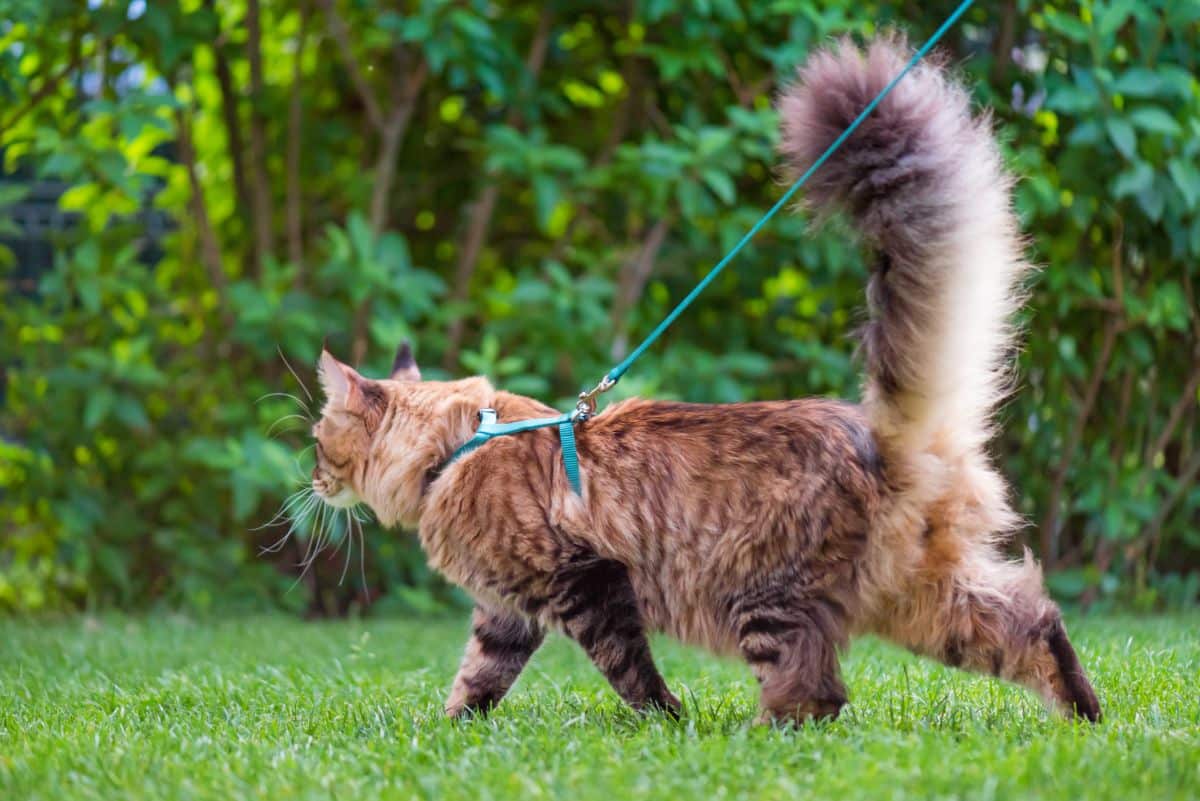
Main Coon coughing can result from tight collars and hairballs but typically isn’t a cause for concern. Monitor your cat’s symptoms over a few days, and call your vet if you’re still worried. Writing down everything you notice and recording when it happens is a great tool to help your vet diagnose something potentially dangerous.

